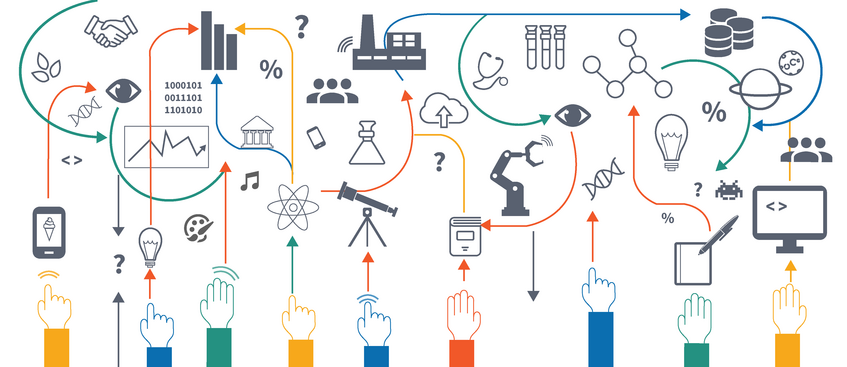Digital Humanities (Master)

Joint Venture
The master's programmes Business Analytics, Data Science and Digital Humanities are a joint venture of the faculties of Business, Economics and Statistics, Computer Science, Historical and Cultural Studies, Mathematics, and Philological and Cultural Studies.
Digitalisation is a sustainable formative factor in many areas of science and society. The solution to the technical problems arising from digitalisation and the scientific reaction to consequences of digitalisation represent a central task of cultural studies.
The master’s programme in Digital Humanities aims at training students who will make a significant contribution to the promotion and anchoring of computer-based methods in humanities research contexts.
Further information on the degree programme is available here
Admission Procedure
Information about the admission procedure
Information on the description of qualifications
Information on Previous Studies:
In any case eligible degree programmes:
- Historical and Cultural Studies
- Philological and Cultural Studies
of the University of Vienna in combination with the extension curricula
Getting started
Getting Informed
Study Programme
Study Programme
The degree programme consists of the compulsory modules “Digital Humanities Skills”, “Theory and Practice of the Digital Humanities”, "Digital Humanities in Data Science", "Specialisation in Clusters of Digital Humanities" and a "Master's Thesis Seminar".
Focus on interdisciplinarity
The degree programmes Business Analytics, Data Science and Digital Humanities were designed together. Students of all three degree programmes complete the same course contents to the extent of one semester. The offered courses and the various disciplinary locations of students allow for a very broad interdisciplinary exchange.
Five Concepts
which you will deal with during your studies:
- Data Analysis
- Digital Human
- Data Science
- Informationstechnik
- Data Ethics
... and many more.
Overview of the programme structure & topics
Here you find the current offer of courses for this programme to gain better insight into the topics and structure. For more information please click on the respective level.
After Graduation
Graduates are qualified to put the knowledge and skills of cultural studies into a new perspective and further advance these skills in digital projects by using the techniques and methods of digital humanities. They possess active knowledge of the basics of data and information technology and gain the competence to apply it on the various subject areas and forms of data of cultural studies. Thus, graduates are qualified to work not only in scientific contexts, but also particularly in application-oriented digitalisation projects in all areas of society.
Graduates' Perspective on the Degree Programme
Graduates ...
- find employment within 2 months after graduation on average.
- earn an average of € 2,719 (women) and € 2,702 (men) gross per month within three years after graduation.
- work full time at a percentage of 68% (women) and 62% (men) within three years after graduation.
*You can find further information on career entry and career paths in the tracking of graduates "Arts and Humanities".
